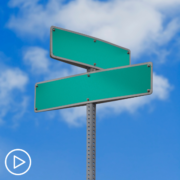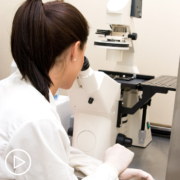How Can I Ensure My CLL Doesn’t Progress to Richter’s Transformation?
How Can I Ensure My CLL Doesn’t Progress to Richter’s Transformation? from Patient Empowerment Network on Vimeo.
What do chronic lymphocytic leukemia (CLL) patients need to know about disease progression? Expert Dr. Ryan Jacobs explains CLL progression, Richter’s transformation, and treatment updates and emerging research on Richter’s.
Dr. Ryan Jacobs is a hematologist/oncologist specializing in Chronic Lymphocytic Leukemia from Levine Cancer Institute. Learn more about Dr. Jacobs.
Download Resource Guide | Descargar Guía en Español
Related Programs:

Are There Signs of Chronic Lymphocytic Leukemia Progression? |

|

|
Transcript:
Lisa Hatfield:
And then this patient is asking a pretty specific question, “Cancer patients are always worried about recurrence or worse, a second cancer. How can I be sure that my CLL doesn’t progress to something called Richter’s transformation?” So maybe if you can explain what that is, talk about that a little bit, the Richter transformation?
Dr. Ryan Jacobs:
Yeah. It’s a really aggressive transformation of the CLL into a high-grade B-cell lymphoma. It’s generally a situation where the cancer cell was a CLL cell and then becomes more aggressive and kind of becomes the dominant cancer, because it’s a lot more aggressive than the CLL. The CLL is still there, but then now you’ve got this aggressive lymphoma on top of it.
We are still treating it like we do other aggressive lymphomas in general. We are trying to find better ways to treat it, because these patients do not have good outcomes with standard lymphoma treatments. I’ve been having success recently for my patients that relapse after chemo, and the large majority of patients will relapse after chemo, but I’ve been having some recent success using CAR T in those patients, and also now have a, I was thankfully getting it sort of off-label approval to do that, but now I actually have a clinical trial investigating axicabtagene ciloleucel (Yescarta) in those patients.
So that’s one area where we’re looking, but we like to manage first-line treatment better. There’s going to be a couple of…I was looking at the big cancer meeting, ASCO is coming up, and that’s usually a meeting that’s much more focused on solid tumors, but there usually are a handful of lymphoma presentations. There wasn’t really much to get excited about, I would say, in terms of big presentations from specifically treatment of CLL, but there were a couple of oral presentations, big presentations for Richter. So that’s really great to see. It’s a very hard disease to do clinical trials in, because generally the patients present so aggressively that you just have to emergently start treatment, and putting patients on clinical trials takes a little extra time in most circumstances, so it’s so hard. But there’s, looks at more data with CAR T and Richter, so we’ll get some more information there, with specifically the Liso-Cel product, which is a different CAR T. And then there’s also looking at doing some immune-based therapies to treat relapsed Richter’s as well. That data hasn’t been released yet, so I’ll be interested when they put that data up preceding the presentations.
Share Your Feedback
Create your own user feedback survey










